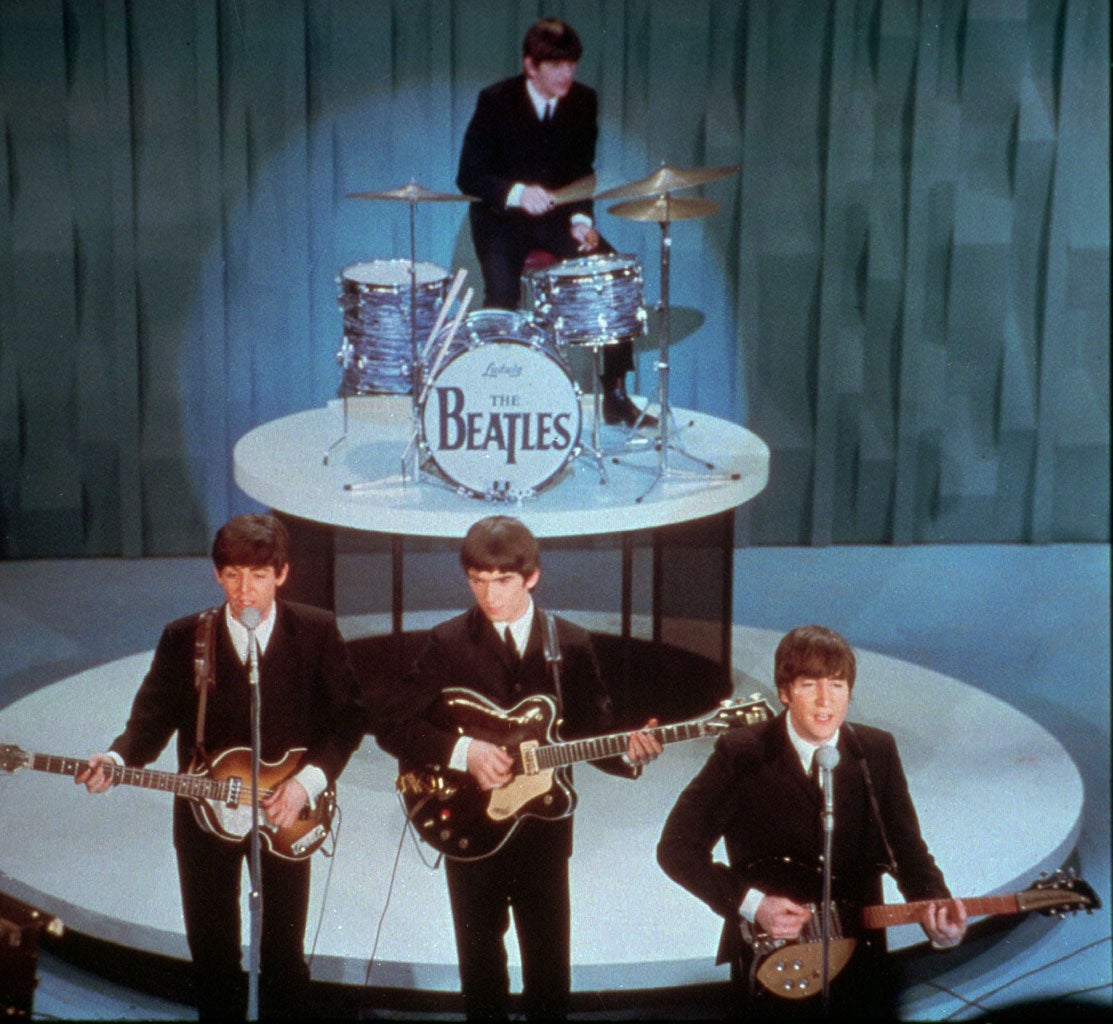Jubilee Lines: 60 Poets For 60 Years, Edited by Carol Ann Duffy
Pop music provides the harmonies in this poetic history of our age – but only until punk arrives.

Your support helps us to tell the story
From reproductive rights to climate change to Big Tech, The Independent is on the ground when the story is developing. Whether it's investigating the financials of Elon Musk's pro-Trump PAC or producing our latest documentary, 'The A Word', which shines a light on the American women fighting for reproductive rights, we know how important it is to parse out the facts from the messaging.
At such a critical moment in US history, we need reporters on the ground. Your donation allows us to keep sending journalists to speak to both sides of the story.
The Independent is trusted by Americans across the entire political spectrum. And unlike many other quality news outlets, we choose not to lock Americans out of our reporting and analysis with paywalls. We believe quality journalism should be available to everyone, paid for by those who can afford it.
Your support makes all the difference.In this collection, each of 60 poets is given one of the 60 Jubilee years (hard lines, 1952, you'd make it 61!). They write related poems, chronologically-ordered. Broadly speaking, there are three approaches: to focus on something happening that year, making it a public poem; to focus on personal memory; or to create a resonance between private life and "world events". The third tactic is most in evidence and can cause awkwardness.
Ruth Fainlight admits to Googling "world events" in 1963, and her candour helps: she writes briefly about her friendship with Sylvia Plath. John Agard (1973) has a centenarian getting confused (calling Keith Floyd "Pink Floyd"); actually, there are some slips. Gillian Clarke has "Heartbreak Hotel on the gramophone" in 1955, but it wasn't recorded till 1956. Grace Nichols recalls Otis Redding reverberating each letter of R-E-S-P-E-C-T in 1965, which he didn't do on record (as Aretha Franklin did), only in some live shows. A poet who doesn't stumble, but who will send many readers to Google themselves, is Geoffrey Hill (1961). "Remind me, now, who died in November," he asks. (James Thurber, though the poem is characteristically gnomic.)
It's genuinely surprising how many poems draw on pop music, from 1955 onwards – Elvis (three times), Bill Haley (twice), The Beatles (three times), Sandie Shaw, Otis Redding, The Stones, The Doors, The Sex Pistols, the Bee Gees (twice) – but only once (Lennon's death) after 1977. Have we become more cerebral? Is there no contemporary version of dancing "in spangled/ hotpants, with a boy in polyester/ flares... one step forward, one step back"? This is Imtiaz Dharker, stayin' alive, in an affecting snapshot.
Perhaps because the period coincides exactly with my life, I was struck as much by the omissions as the inclusions. No World Cup Final, no moon landing, no power cuts, no Princess Di, neither Maxwell nor Murdoch, although we do relive the miners' strike (three times), the Falklands (a rather ponderous all-wars-are-alike quotation from his Arthur by Simon Armitage), the fall of the Soviet bloc, and the Great Storm.
Whether individual poems succeed seems hit and miss. Fleur Adcock has a wry memory of her unborn baby giving a "loyal kick" when the Queen visited New Zealand in 1954. There are surprising choices (Moniza Alvi on Dietrich's death in 1992). Owen Sheers (2004) has a chance encounter with Psycho's Janet Leigh, but tries too hard to link her death with an Abu Ghraib photograph. There are brilliant images: Sinead Morrissey's 2009 image of a sick child ("the ransacked terraces of your small intestine"); Douglas Dunn's cracking observation of a 1956 class photograph as containing "pensioners in disguise". Maura Dooley's take on Thatcher's 1979 election is crafty about seeing the symbolic "sudden snatch of snow/... not as warning but as wonder". The near-death experiences of Elaine Feinstein (1957) and Robin Robertson (1986) are intense and powerful.
But in this cleverly-conceived scrapbook, there is certainly one stunning poem. Louche as ever, as if oblivious to the years around him, Hugo Williams looks back at a 1968 theatre programme from Brighton ("so long it has to be folded"), and remembers precisely what he claims to have forgotten.
Bill Greenwell's collection 'Ringers' is published by Cinnamon
Join our commenting forum
Join thought-provoking conversations, follow other Independent readers and see their replies
Comments